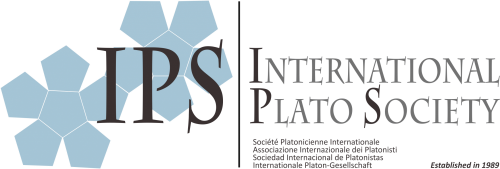
“Eines Morgens wachst Du nicht mehr auf, die Vögel aber singen, wie sie gestern sangen. Nichts ändert diesen Tageslauf. Nur Du bist fortgegangen, Du bist nun frei und unsere Tränen wünschen Dir Glück“
“One morning you will no longer wake up, but the birds will sing as they sang yesterday. Nothing changes this course of the day. Only you have gone away, you are now free and our tears wish you happiness“
With these heartfelt words the Szlezák family announces the departure of Thomas Alexander Szlezák on 18 October, after a brief but difficult illness. He was not only a co-founder but also an active member of the IPS, both on the Executive Committee and the Editorial Board. His publications include first and foremost his edition and commentary on the Pseudo Archytas über die Kategorien (1972). His Habilitationschrift was on Platon und Aristoteles in der Nuslehre Plotins(1979). Together with K. Gaiser and H.-J. Krämer, he was an eminent representative of the Tübingen School. As a classical philologist he emphasises the analysis of the allusions to the agrapha dogmata in the dialogues themselves (Platon und die Schriftlichkeit der Philosophie. Interpretationen zu den frühen und mittleren Dialogen, Berlin/ New York 1985; Das Bild des Dialektikers in Platons späten Dialogen, Berlin/ New York 2004). In the same vein, but aimed at the general public, he published his Platon lesen (1993), which has been translated into almost twenty languages. In addition to his Platonic studies, he has published two studies on Greek culture (2010) and, specifically, on Homer (2012). Testimony to this broad spectrum of interests are his Aufsätze zur griechischen Literatur und Philosophie (2019). “Ein gelungener Wurf” is undoubtedly his opus magnum, his latest book on Plato (2021), in which he presents the results of his research for the general educated public. Thomas Alexander Szlezák was an important researcher of Plato and Platonism. The IPS will remember him as a gentle member of great merit, who was always committed and consistent in defending his positions in Platonic studies.
